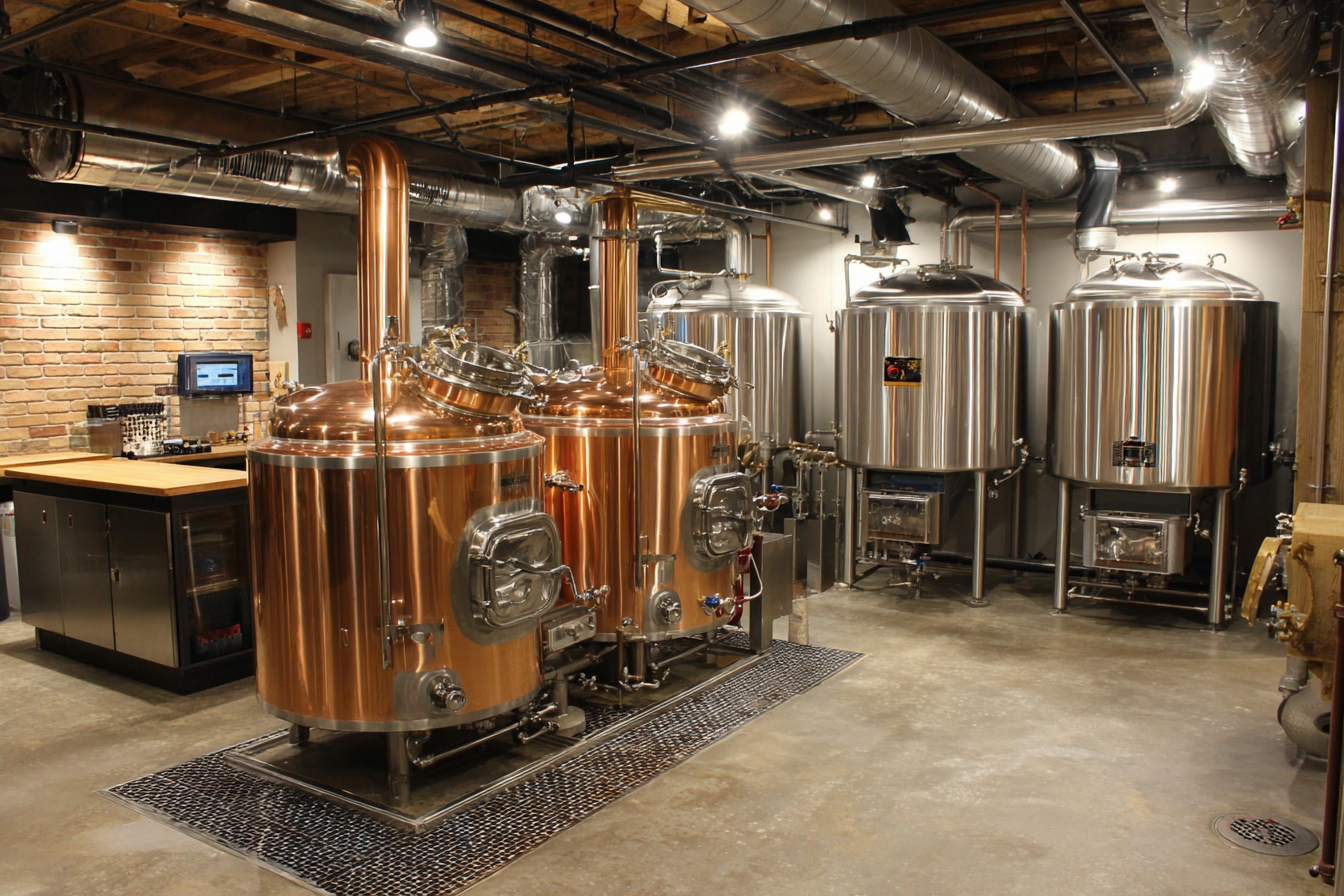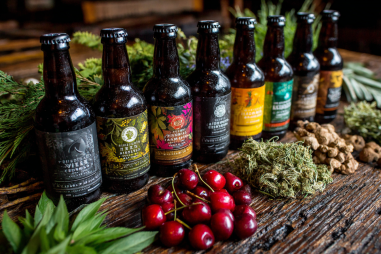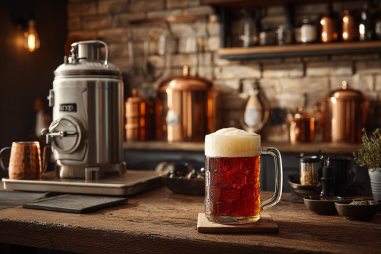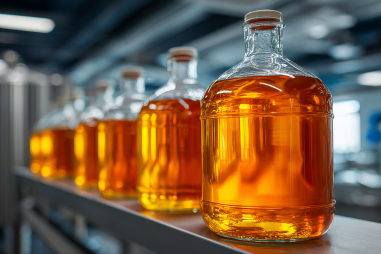Brewing your own Czech Dark Lager can be a rewarding and enjoyable adventure for any craft beer enthusiast. Known for its rich maltiness, smooth finish, and distinctive deep color, this style requires attention to detail and the right brewing equipment to achieve authenticity. Whether you’re a homebrewer or embarking on small-scale commercial brewing, understanding the essential gear needed will set you up for success. From basic brewing tools to specialized fermentation tanks and temperature controllers, every piece of equipment plays a vital role in crafting this classic beer style.
Understanding the Basics of Brewing Equipment
Before diving into the specifics for Czech Dark Lager, let’s cover the foundational brewing equipment everyone should have. At its core, brewing involves mashing grains, boiling the wort, fermenting, conditioning, and finally packaging. For these steps, certain tools are indispensable.
Some of the basic gear includes a mash tun or kettle for heating and steeping malted grains, a large pot or boiler for boiling the wort, fermenters to convert sugars into alcohol, and containers for storing the finished beer. Additionally, you’ll need tools for cleaning, measuring, and monitoring throughout the process.
Homebrewers commonly work with all-in-one kits or multi-use vessels that combine some of these functions, while small commercial setups might separate these steps into different specialized equipment for better control and scalability.
Specific Equipment for Czech Dark Lager Brewing
Czech Dark Lager is a bottom-fermented beer that emphasizes malt character and requires careful temperature regulation and extended fermentation times. This necessitates some specialized gear beyond the basics.
- Quality Mash Tun: Since Czech lagers rely on clear wort with a rich malt profile, a good mash tun (often a kettle with a false bottom or specially designed vessel) is essential for precise temperature control during mashing.
- Lauter Tun: For rinsing the grain bed and extracting sugars efficiently, a lauter tun helps ensure the maximum malt character is captured, which is fundamental for Czech dark lagers.
- Boil Kettle with Hop Filter: Czech lagers have a delicate hop bitterness, so having a kettle equipped with a hop filter allows for easy removal of hops after boiling, maintaining the smooth flavor profile.
- Fermentation Tanks: Traditional Czech dark lagers require fermentation tanks capable of holding lower temperatures (around 7-13°C or 45-55°F) with good cooling capabilities. Stainless steel conical fermenters are ideal as they allow easy yeast collection and better sanitation.
- Cooling Equipment: An efficient wort chiller is indispensable to bring the boiled wort down to fermentation temperatures quickly and reduce the risk of contamination.
The Importance of Temperature Control and Fermentation Tanks
Temperature is a critical parameter in brewing Czech Dark Lager. The yeast strains used for this style are bottom fermenters that thrive at cooler temperatures and require longer fermentation periods to develop the traditional smooth, clean taste.
Maintaining a steady temperature between 7-13°C (45-55°F) during fermentation and lagering phases is crucial. This is why investing in reliable temperature control equipment is indispensable, whether it’s a temperature-controlled fermentation chamber or jackets surrounding the fermenters. Precise temperature control helps prevent off-flavors and promotes proper yeast activity.
Stainless steel conical fermentation tanks are preferred for many brewers because they are easy to clean and allow the yeast to settle effectively. These tanks support the extended lagering process, during which the beer matures and develops balanced flavors and clarity. For smaller brewers, insulated fermenters paired with glycol jackets or temperature-controlled fermentation chambers offer optimal results.
Tools for Measuring and Monitoring Brewing Parameters
Consistency is key to mastering any beer style, especially a nuanced one like Czech Dark Lager. Accurate measurement of factors like wort gravity, pH, and temperature throughout the brewing process ensures you stay on track and create high-quality batches.
- Hydrometer or Refractometer: These tools measure the sugar concentration in the wort, helping to monitor fermentation progress.
- Thermometers: High-quality probe thermometers enable precise temperature readings during mashing, boiling, and fermentation.
- pH Meter or Test Strips: Monitoring the pH of the mash and wort can influence the efficiency of extraction and final flavor balance.
- Timer: Keeping consistent times for mashing, boiling, and fermentation stages can’t be overstated, so a timer helps maintain discipline during brewing.
Cleaning and Maintenance: Ensuring Equipment Longevity and Beer Quality
Proper sanitation is a cornerstone of any successful brewing process. Especially when producing delicate styles like Czech Dark Lager, contamination can destroy months of effort and ruin the batch.
Regular cleaning with brewery-approved detergents and sanitizers prevents bacterial growth and off-flavors. Pay special attention to fermenters, mash tuns, and hoses since residues or biofilms can harbor microbes. Using cleaning brushes, CIP (clean-in-place) systems, and hot water rinses complements chemical cleansers.
Additionally, routine maintenance of mechanical parts such as pumps, valves, and seals ensures that leaks or malfunctions don’t compromise the brew. Keeping logs of cleaning schedules and inspecting equipment visually before and after brews helps catch problems early.
Home Brewing vs. Commercial Setups: What You Need to Know
Deciding between home brewing and small-scale commercial equipment largely depends on your goals, space, and budget. Homebrewers often use compact, all-in-one systems like kettle setups with immersion chillers and plastic fermenters. These are cost-effective and suitable for batch sizes up to 5 gallons (19 liters).
In contrast, commercial setups include larger vessels, automated temperature controls, and stainless steel fermenters designed to handle tens or hundreds of gallons. These investments allow for consistency, greater volume, and access to enhanced monitoring technology. However, they require more space, higher upfront costs, and more expert maintenance.
Many brewers start with home brewing equipment to learn the process and then gradually upgrade to semi-professional or commercial gear as their passion or business grows. The principles and essential pieces remain the same, but the scale and precision improve.
Helpful Tips for Beginners Brewing Czech Dark Lager
Starting your journey with Czech Dark Lager brewing might seem complex, but with the right gear and some guidance, it becomes manageable and enjoyable.
- Invest in Quality Equipment: While it’s tempting to cut corners, quality brewing gear yields better control and results, especially for lagers requiring precise temperature management.
- Focus on Temperature Control: Keep fermentation chilled and stable; consider using temperature controllers or dedicated fermentation chambers.
- Be Patient: Czech lagers need longer fermentation and lagering times to develop their characteristic smoothness and clarity.
- Sanitation is Key: Never skip cleaning steps — a clean environment ensures your flavors remain pure and your batches consistent.
- Record Everything: Document your techniques, temperatures, times, and any changes — this helps replicate successes and learn from mistakes.
By equipping your brewing space with the essentials and embracing the process, you’ll soon revel in your own deeply flavorful Czech Dark Lager.
Bringing It All Together: Crafting Classic Czech Dark Lagers
Whether you’re brewing in your kitchen or scaling up for commercial production, the journey to mastering Czech Dark Lager starts with understanding your equipment needs. From the mash tun and boil kettle down to precise fermentation vessels and temperature controls, each piece ensures you honor the style’s traditional profile.
Investing in good measurement tools, adhering to strict cleaning routines, and knowing when to upgrade your setup are all part of the craft. With patience and care, you can produce authentic, rich, and satisfying Czech Dark Lagers that showcase the art of brewing at its finest.







